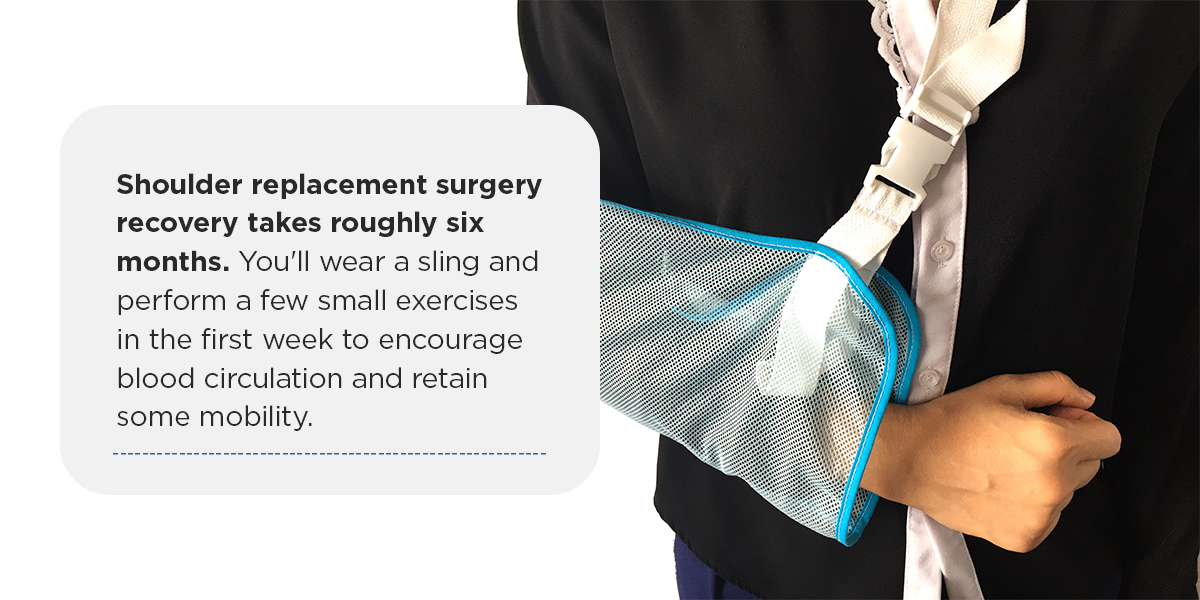

If you’re struggling with shoulder pain, doctors use various strategies to provide relief. Sometimes, shoulder replacement surgery is the best solution. Read on to learn more about total shoulder replacement (TSR) surgery and what to expect from the process.
Total shoulder replacement surgery is the process of removing existing joint structures and replacing them with artificial parts. Most replacement shoulders feature materials like stainless steel and polyethylene plastic.
Replacement surgery is most often necessary for patients experiencing complications from medical conditions like osteoarthritis, rheumatoid arthritis or avascular necrosis. You may also need shoulder replacement surgery after tearing a rotator cuff or suffering a severe shoulder blade fracture. Some doctors suggest surgery if other treatments like physical therapy, medications, cortisone injections or other surgeries fail to relieve your pain.
Shoulder replacement surgery is all about installing new, stronger components that replicate your shoulder’s normal functionality. The shoulder is a ball and socket joint where the upper arm (humerus) fits into the shoulder blade (scapula). The surrounding muscles give your arm a wide range of motion. There are a few types of surgery that replace different parts of the joint:

After surgery, you’ll stay in a recovery room for a couple of hours where the medical staff can monitor your vitals. Then, you’ll move to a hospital room for two to three days. You may be unable to feel or move your arm at first, but full function should return within 24 hours.
Shoulder replacement surgery recovery takes roughly six months. You’ll wear a sling and perform a few small exercises in the first week to encourage blood circulation and retain some mobility.
Minor physical therapy will begin two to four weeks after your procedure. You’ll begin more intensive strengthening exercises around six weeks. At this time, you’ll be able to remove the sling and resume activities like driving.
Mobility and pain should improve three months after surgery, but you should still avoid rigorous activities like sports.
The medical professionals at New York Spine Institute can help. We encourage you to request an appointment today!